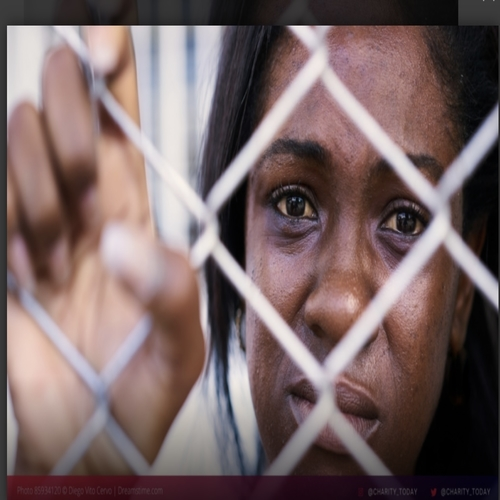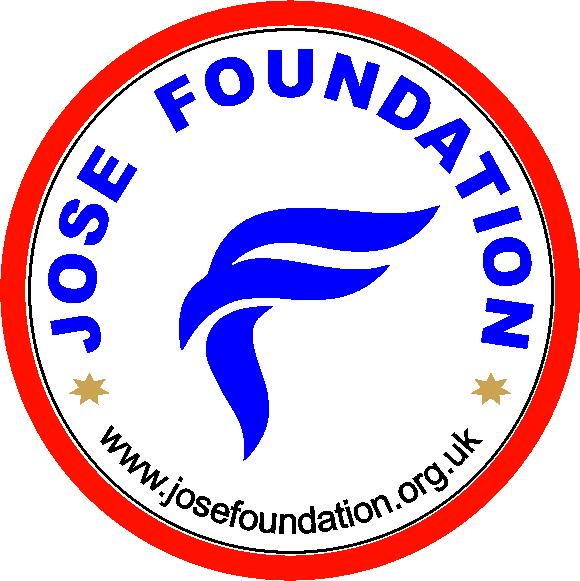
By Dr. Martins Abhulimhen and Charles Orifa of Jose Foundation UK www.josefoundation.org.uk.
INTRODUCTION
Nigeria is failing its women and girls in so many ways. The latest spate of violence across the country has underscored the critical need for government to act swiftly to protect its most vulnerable and put an end to gender-based violence. From the camps of internally displaced persons to states across the federation, it is the same story; women and girls have been victims of gruesome attacks.
The Nigerian police recently stated that it received 717 reported cases of rape between January and May 2020, adding that the current covid-19 pandemic has led to increased levels of violence against women and girls. This does not account for the number of survivors who chose to stay silent, afraid of the perpetrator(s) and even more terrified of a society where rape culture and victim-blaming is rife. From late May to early June, several civil society organizations in the country took to the streets to protest the rape and murders of Uwa Omozuwa who was raped in a church in Benin and died as a result of the brutal attack; Barakat Bello who was raped and killed in her home; and Grace Oshiagwu who was raped and killed in Ibadan, the Oyo State capital. In response, the police intensified efforts to catch the perpetrators showing the power of social movements in addressing violence against women.
Mudiaga Affe (2020)
Intense pressure from civil society groups also compelled the Federal Government to declare a state of emergency on gender-based violence in the country. However, the Government has to do a lot more to curb GBV in the country, by taking decisive actions through appropriate legislation, and strengthening of agencies that handle gender-based violence cases, especially law enforcement, social and welfare services. Akindare Okunola (2020)
AN INCREASE IN GENDER-BASED VIOLENCE DURING LOCKDOWN, LABELLED THE ‘SHADOW PANDEMIC’ BY THE UN, THREATEN THE LIVES AND LIVELIHOODS OF WOMEN AND GIRLS IN AFRICA’S LARGEST ECONOMY.
Nigeria has long been facing a gender-based violence crisis, with 30% of women and girls aged 15-49 having experienced sexual abuse. Lack of coordination amongst key stakeholders and poor implementation of legal frameworks, combined with entrenched gender discriminatory norms, has hampered government and civil society efforts to address gender-based violence. These efforts have been further compromised by the COVID-19 pandemic.
The pandemic has seen the diversion of priorities and resources and resulted in a surge of reports of gender-based violence because of Federal Government imposed lockdowns in Lagos, the Federal Capital Territory (Abuja), and Ogun State. As Africa’s largest economy and most populous nation, Nigeria’s response to the gendered impacts of the COVID-19 pandemic will carry significant weight for the entire region. Jessica Coroline Young & Camron Aref-Adib (2020)
LOCKDOWN INCREASED DOMESTIC VIOLENCE
Whilst disease outbreaks threaten populations’ health, the aggressive response measures of governments, such as lockdowns, often increase women and girls’ vulnerability to violence. Indeed, since governments across the world began imposing lockdowns to fight the COVID-19 pandemic, countries have witnessed a rise in reports of gender-based violence. From the UK and US to Singapore and China, Nigeria to Ghana, authorities have reported increasing cases of domestic violence and demand for emergency shelter.
THE ROLE OF MEDIA IN PREVENTING GENDER-BASED VIOLENCE (GBV)
In a democracy, the media holds the key to bringing about mass awareness on issues of political, social and economic importance. However, it is mostly observed that political and economic news items are given more preference over social issues in many of the media channels. This is leading to a massive neglect of social issues, especially the issue of violence against women which is a rampant problem existing in the region. The lack of coverage of such an issue has led to poor awareness about women’s rights among the general public and refusal of the government to consider it as a policy issue. Therefore, it is suggested to implement a project on sensitizing the media against this issue for creating sustainable public awareness and for policy advocacy.
KEY OBJECTIVES
- Increase the sensitivity-levels of the media in covering issues of violence against women
- Examine the impact of media coverage about the issue of violence against women on general public awareness and policies of the government.
ACTIVITIES OVERVIEW
- Identify and liaison with effective media channels and study their existing reach and coverage of social issues, especially the issue of violence against women.
- Organize training workshops with media persons to sensitize them about the issue of violence against women.
- Undertake a case study documentation of violence against women in the project area to support the media in featuring the news about it.
- Carry out media analysis of the coverage of social issues, especially the issue of violence against women and report it back to the media.
- Organize a media-government conference on the issue of violence against women.
EXPECTED RESULTS
- Effective partnerships established with various media channels to cover social issues especially the issue of violence against women.
- Improved sensitivity levels of media persons in covering news about the issue of violence against women.
- Increased news items appearing about cases of violence against women across the media channels.
- The government is responsive towards considering policies to address the issue of violence against women.
WORKING WITH THE MEDIA
When working with media, whether it be engaging with traditional and or using social media in your campaign, there are a number of ethical considerations that need to be factored in: Caroline Liou (2013)
- Any presentation of stories, research, or quotes from people who have experienced or committed acts of violence, must protect their confidentiality and be based on the principle of ‘do no harm’.
- You should not use real names unless people specifically agree to be identified.
- Take care when presenting research findings, to ensure that the information presented is sufficiently aggregated to ensure that no one, community or individual can be identified.
- Where case study findings are presented, sufficient details should be changed to ensure that the source of the information cannot be identified.
- When research findings are used, they must be disseminated in a scientifically rigorous manner. Care should be taken to highlight the extent to which VAW is cross-cutting, existing in all communities and socio-economic groups. Particular attention must be paid, to ensure that findings are not used as a means to describe one setting or ethnic group as being ‘worse’ than another.
- You should change names and omit other identifying descriptions of visuals unless an individual has given informed consent.
- In certain cases, using an interviewer or interviewee’s name and/or recognizable image is acceptable. However, if their identity is used, they must still be protected against harm and supported through any stigmatization or reprisals.
- Avoid using images of, or identifying women’s shelters, psychosocial support/counselling centres, etc. Work with photographers to formulate images that do not victimize or stigmatize people who have experienced violence or former perpetrators of violence; and that do not identify interviewees who wish to maintain anonymity.
CONCLUSION
People affected by Gender-Based Violence (GBV) need to know their digital realities and the solutions they need to explore using technology as a tool for freedom of expression.
Jose Foundation is making that reality come to pass by creating a web & mobile portal for reporting, educating and reprofiling solutions to Gender Base Violence in Nigeria. Where people affected regardless of race, gender, language, ability, economic status and geographic origin can have a voice.
At Jose Foundation we are not just giving voices to the voiceless and vulnerable children and women, we are saving lives.
For more details of how the Jose Foundation is saving lives, please visit: www.josefoundation.org.uk.
REFERENCES
(Mudiaga Affe, Premium Times, 2020)
(https://www.premiumtimesng.com/news/top-news/410969-omozuwa-police-parade-suspected-killers-of-uniben-student.html).
Akindare Okunola, Global Citizens (2020)
https://www.globalcitizen.org/en/content/nigeria-state-of-emergency-gender-violence-rape/
Jessica Coroline Young & Camron Aref-Adib, The shadow pandemic: Gender-based violence and COVID-19 (2020)
Caroline Liou (2013)
Partners for Prevention gratefully acknowledges AusAID, DFID, the Norwegian Ministry of Foreign Affairs and SIDA for their generous support of this programme.

